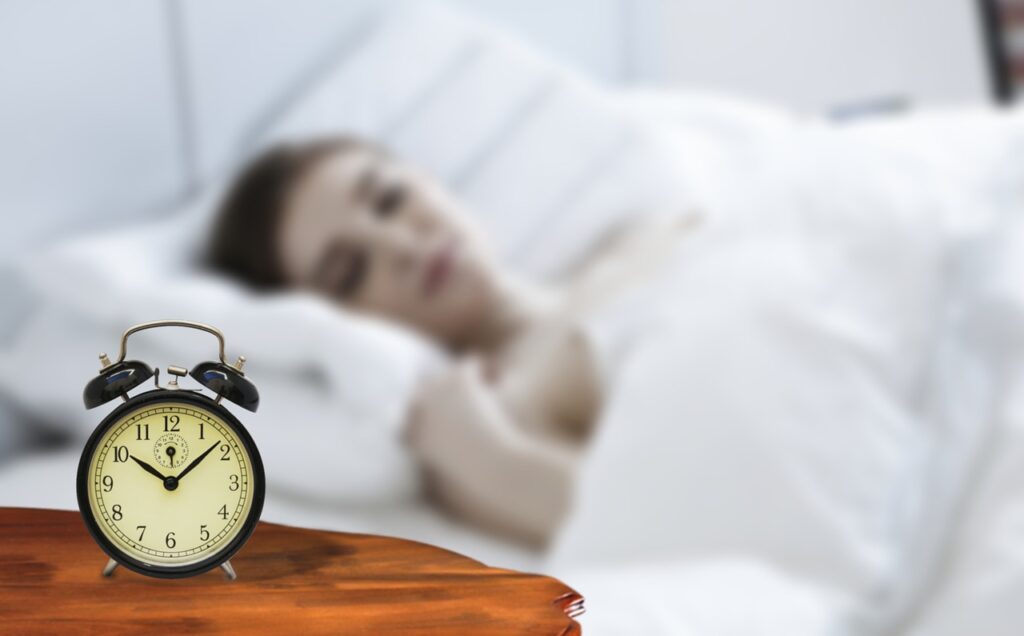How Sleep Affects Your Manliness
Sleep is a symptom of caffeine deprivation. — Anonymous
You would think living at home during a quarantine would result in getting more sleep than normal – no commuting, no going out, no new TV shows to watch before bed (because you’ve already watched them all).

But from what we know about the psychology of sleep, we can expect the opposite: getting less exercise, having reduced social interactions, and associating your workplace with your home can all reduce the amount (and quality) of your sleep.
Although we know that impaired sleep can have some pretty bad consequences for your physical and mental health, new research sheds light on an unexpected consequence of reduced sleep:
How “manly” you seem.
SLEEP DEPRIVATION BY GENDER
According to recent estimates, approximately 62% of adults worldwide report they are not getting enough sleep. Although the Center for Disease Control (CDC) recommends people get a minimum of 7 hours of sleep a night, in the United States, the average American reports sleeping even less than that.
And this problem seems to be particularly an issue for men.

Using Fitbit fitness tracker data, researchers find that men on average get significantly less sleep than women. According to researchers, this “gender-sleep gap” is largely driven by differences in work time, travel, and leisure (e.g., drinking). However, recent research indicates another cause:
The desire to be viewed positively by others.
From U.S. Presidents, like Barack Obama and Donald Trump, to historical figures, like Benjamin Franklin and Thomas Edison, these cultural figures prided themselves on the lack of sleep they get.
Of course, other non-male figures, like Martha Stewart, Lady Gaga, and the CEO of Yahoo!, Marissa Mayer, have also boasted about getting a lack of sleep. But in some hot-off-the-press research, it is men (more so than women) who receive social approval by expressing their lack of sleep.
THE SLEEP-DEPRIVED MASCULINITY STEREOTYPE
In a series of studies, researchers provided participants with descriptions of male characters who were either described to get “a lot of sleep” or “only a little sleep.” Afterward, participants rated how masculine the character was.
Whether the participant him/herself was a man or woman, male characters who were described to only sleep a little (vs. a lot) were reported to be significantly more masculine and manly.

In another study, researchers provided “reverse” evidence for this sleep-deprived masculinity stereotype. That is, participants were asked to picture in their minds a man who was either “very masculine and manly” or a man who was “not very masculine and not very manly.”
Afterward, the researchers asked participants how much they thought this individual slept.
On average, the manly man was expected to sleep for 45 minutes less than the non-manly man.
In general, the researchers found that we expect masculine/manly men to be more self-focused and goal-driven (what researchers call “agentic”). In other words, because we expect manly men to be bigger go-getters, we also expect them to get less sleep.
Importantly from this research, they found that men who are described to sleep only a little (vs. a lot) are evaluated more positively. In other words, even though getting MORE sleep is actually good for your physical and mental health, men who are described to sleep only a little are evaluated more favorably.
TO SLEEP OR NOT TO SLEEP
There is no question that sleeping more – or at least for the recommended 8 hours a night – is better for your health. However, this research highlights some of the negative stereotypes associated with this behavior, particularly for men.
In general, these findings align with the broader, social judgment that men face in trying to appear “manly.” In this case, the pressure by society for men to appear masculine could entail that they avoid sleep in order to uphold this stereotype – which comes at the cost of their physical and mental wellbeing.
Sleepily-But-Not-Masculinly,
Jake
Everyday Psychology: In this research, we focused on how the perception of sleep quantity impacts the judgments of men. Although the researchers also looked at how this affected perceptions of women, the results were inconsistent. In some cases, women who were described as masculine were expected to sleep less. However, in other studies, they didn’t find this relationship. Why might this be? Part of the issue might be related to the stereotype surrounding women and “beauty sleep.” For example, although women who were described to sleep a little (vs. a lot) weren’t perceived to be more masculine; they were perceived to be more attractive. Putting gender aside, though, the researchers did find a similar effect for consumer products. That is, products that help you sleep more were seen as more feminine, where products that help you sleep less (e.g., energy drinks) were seen as more masculine.

Viens, Ashley (2019), “Visualizing the World’s Sleeping Habits,” Visual Capitalist: Visual Capitalist (August 9, 2019).
Walker, M. (2017). Why we sleep: Unlocking the power of sleep and dreams. Simon and Schuster.
Warren, N. B., & Campbell, T. H. (2020). The Sleep-Deprived Masculinity Stereotype. Journal of the Association for Consumer Research.







